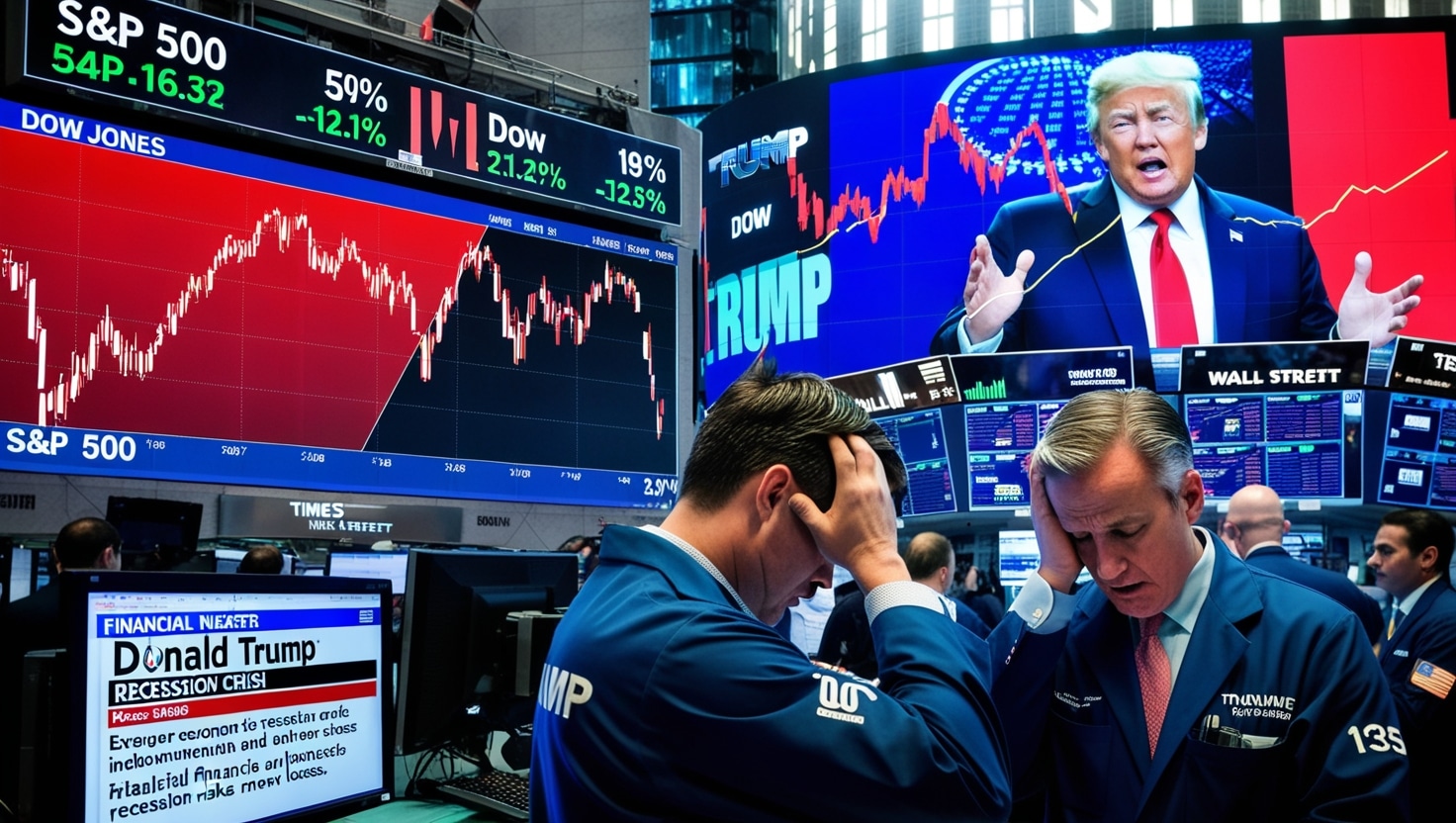
Donald Trump frequently highlighted booming stock markets during his initial White House tenure. With his social media accounts buzzing, the former president proudly announced hitting record highs, repeatedly pointing towards rising indices as evidence of success.
Upon his re-election victory in November 2024, Trump’s team was quick to share with the New York Times how personally invested he was in the stock market as an indicator of his policy effectiveness. His economic strategy following deregulation and significant tax cuts initially boosted Wall Street’s optimism.
Stock Market Turbulence
Yet, recent trade tensions have delivered a sharp blow to investor confidence. The S & P 500, a widely tracked measure of stock market performance including top corporations, has plunged over 10% since its peak in February 2025. Market watchers commonly refer to moves of this magnitude as a “correction,” and already roughly US$5 trillion has vanished from the value of US equities.
Analysts largely blame Trump’s wavering trade stance, particularly the unclear tariff policies toward Canada and Mexico. The unpredictability has rattled markets, creating an uncomfortable sense of uncertainty among businesses, investors, and global economic partners.
Economic Outlook
Concerns around trade disruptions are echoed strongly by major banks. In the latest reports, JP Morgan increased the probability of a U.S. recession from 30% earlier in the year to around 40%. Moody’s Analytics similarly raised their recession odds sharply from 15% to 35%, highlighting trade tariffs as a primary culprit.
Economic downturns naturally squeeze corporate profit margins, leading to falling share prices. Despite clear evidence of investor unease and declining stock values, the Trump administration holds firm, dismissive of the current dip. During his March 4 congressional address, Trump defended his tariff actions, emphasizing a long-term vision of renewed prosperity, despite possible short-term turbulence.
Trade Strategy Insights
Stephen Miran, recently appointed chairman of Trump’s economic advisory council, offers deeper understanding in his document titled “A User’s Guide to Restructuring the Global Trading System.” The central argument points to the consistently high valuation of the American dollar as fundamentally problematic. Miran asserts that tariffs have had minimal effect on inflation and overall economic health—a claim up for debate among economists.
Yet Miran concedes the irony that applying tariffs can paradoxically maintain or even reinforce dollar strength, rather than bringing it down. He argues this point remains controversial within academic and financial circles, raising valid questions without definitive resolution.
Economic Contradictions
Adding to this complexity, Steven Englander of Standard Chartered Bank identifies inherent contradictions in Trump’s broader economic agenda. During an interview with the Financial Times, Englander explained how reducing America’s trade deficits while defending the dollar’s privileged reserve currency status naturally puts upward pressure on currency value.
A weaker dollar generally aids exporters and helps close trade deficits, but the stable reserve currency status often attracts worldwide financial inflows, further strengthening it. Miran recognizes these apparent contradictions, noting that successfully reshaping global markets in America’s favor presents a rigorous challenge demanding careful consideration and execution.
Conclusion
The administration’s current view clearly indicates acceptance of immediate stock market volatility as part of a larger strategy to reshape economic policy. Trump’s team remains committed and optimistic, despite widespread worry expressed by economic experts and market participants alike. Whether their gamble yields long-term economic stability or further complicates existing anxieties is yet to be seen—but the stock market consequences remain plain to see today.

















